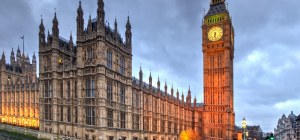47: Great Repeal Bill – Where are we going?
The EU (Withdrawal) Bill has now finished its final stage in the House of Lords (Third reading) but, with the Government in deadlock over the form of Brexit it is seeking, no date has yet been set for the Bill to return to the Commons.
Third reading
We commented on the first three days of report stage (and six defeats) here, and on the latter three days (and a further eight defeats) here. At third reading, Peers inflicted a fifteenth defeat on the Government.
Lords Krebs’ Amendment 1 inserts a new clause after clause 4, which requires the Secretary of State for Environment, Food and Rural Affairs to take steps to maintain the EU’s environmental principles in domestic law after Brexit. Those principles include:
- the precautionary principle as it relates to the environment;
- the principle of preventive action to avert environmental damage;
- the principle that environmental damage should as a priority be rectified at source;
- the polluter pays principle;
- sustainable development;
- prudent and rational utilisation of natural resources;
- public access to environmental information;
- public participation in environmental decision making; and
- access to justice in relation to environmental matters.
Defra has already launched a consultation on a new Environmental Principles and Governance Bill but Peers clearly did not believe this was sufficient.
Government amendments 3 to 6 and 10 to 13 were also agreed to (without a vote). These were largely correcting amendments to earlier Government amendments, but we would highlight Nos. 12 and 13, which adjust the wording of paragraph 37 of Schedule 7 to the Bill, to provide for the application of scrutiny provisions to combinations of instruments in Parliament and also in the devolved legislatures.
The Government would like to reverse the Lords’ amendments at the earliest opportunity (before the next EU summit on 28 and 29 June), but it may be forced to delay until the autumn.
Deadlock and delay
The reason for the delay is clear: the Government remains deadlocked over the form of Brexit it is seeking, typified by the recent 50/50 cabinet split over whether it prefers a ‘new customs partnership’ or ‘max fac’ – notwithstanding that both have already been rejected as unworkable by the EU, given a hefty price tag by HMRC chief Jon Thompson, and Ministers have conceded neither will be ready in time.
Certain Tory Brexiteers favour a ‘clean break’, but it seems there is no outright majority in the Commons for that, with MPs (on both sides of the House) willing to implement the referendum instruction to ‘Leave’ but concerned about the potential economic and social impacts of doing so. But there doesn’t seem to be a Commons majority in favour of EEA membership, seen as ‘the worst of both worlds’, either. Continued membership of the Customs Union, on the other hand, looks too close to call, but faces the additional difficulty of not being supported by either front bench.
Given the lack of a clear majority for any option, recent reports suggest the Government may seek to maintain existing customs arrangements beyond the transition period (ie end 2020), to allow more time for its preferred permanent solutions (a ‘new customs partnership’ or ‘max fac’) to be developed. But that approach would require adjustments to the (largely agreed) financial settlement, which is based on a transition period which aligns with the EU’s MFF budgeting period 2014-2020.
The Prime Minister has also announced a Brexit white paper, in which the Government will set out its priorities for Britain’s future relationship with the EU and give a ‘detailed, ambitious and precise’ explanation of what the Government wants the final deal to deliver. Of course, the Government published a white paper on the same subject a year ago.
The House of Commons’ Exiting the European Union Committee has commented on the delay, and the significant issues yet to be resolved, in its latest report on the progress of the UK’s negotiations on EU withdrawal. The Committee Chair, Hilary Benn MP, commented:
‘We are rapidly running out of time to get new trade and customs arrangements in place. Given that ministers are indicating that neither of the two options being discussed are likely to be ready by December 2020, when the transition period ends, the UK will in all likelihood have to remain in a customs union with the EU until alternative arrangements can be put in place.’
On citizen’s rights, the report notes that the UK has described the general, overarching structure of the Settled Status application process, but highlights there has not been equivalent planning in many EU Member States. On the Northern Ireland border, the report comments on the lack of clear proposals for maintaining a frictionless border (a ’cause of concern’), and that the Government has not yet made a counter-proposal to the EU’s ‘backstop’ option of ongoing regulatory alignment on the island of Ireland.
Commenting on the overall state of the negotiations, Hilary Benn added:
‘Twenty-three months after the referendum and fourteen months since the triggering of Article 50, we still don’t know what the UK’s future relationship with the EU will be on trade, services, security, defence, consumer safety, data, broadcasting rights and many other things. The clock is now running down and Parliament will need clarity and certainty by the time it is asked to vote on a draft withdrawal agreement in the autumn. We wait to see whether the promised white paper next month will provide it.’











